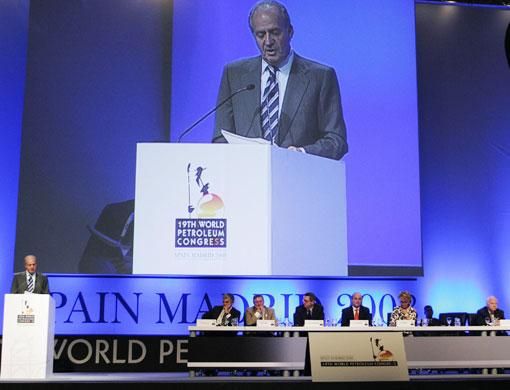Dubai: Oil inched closer to $144 a barrel on Monday as debate raged around the cause of spiralling price. London's Brent North Sea oil scored a historic peak of $143.91 and New York light sweet crude struck an all-time high of $143.67.
With the psychological barrier of $150 fast approaching, individuals and companies are calculating the additional costs, while G8 finance ministers and officials of oil companies sat down in Madrid yesterday to take stock of the situation.
Oil industry is sharply divided over the cause of the high prices. While suppliers blame it on speculation, oil majors point to a dearth of new supplies.
"Oil producers are saying, there isn't any demand that is not met by the supplies. So the current price hike is not due to demand, but mostly due to the speculative elements in international oil trade," Kate Dourian, an oil analyst and editor of energy information service provider Platts Middle East, told Gulf News in a telephone interview from Madrid.
"There is no shortage of supply now. However, the concern is about the future, especially after 2012 when the new capacity will be exhausted by demand without additional capacity."
"Large amounts of speculative investments in oil may be having a significant impact on world oil prices," Oxford Business Group (OBG) said in its latest report Speculative Oil.
"Evidence suggests that there are other, more speculative forces at work in the oil sector which are driving up prices," it said.
In Madrid, oil company chiefs insisted yesterday that the failure of supply to match rising demand was the real cause. "This is a fundamental thing. It's not about speculation," the chief executive of BP, Tony Hayward, told delegates, adding that it was a "myth" that speculators were to blame.
Iraq invites bids
"They [investors or speculators] are investing in the oil market because they believe prices will go up." Jeroen van der Veer, head of Shell.
"Iraq, meanwhile, threw open the world's third largest oil reserves to foreign firms yesterday, putting British and US companies in pole position five years after US-led troops invaded the country to oust Saddam Hussain. The move to invite bids for the development of Iraq's largest oilfields will mark the return of the oil majors.













